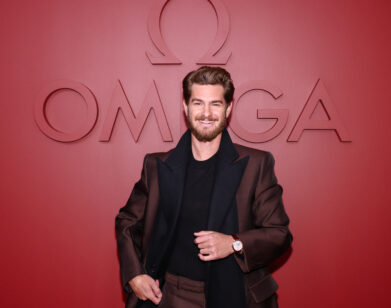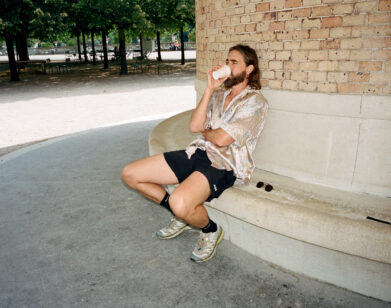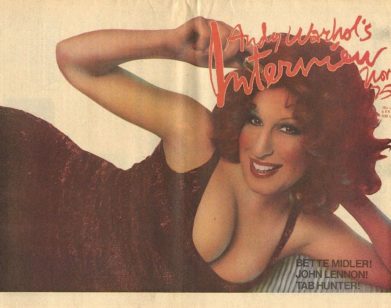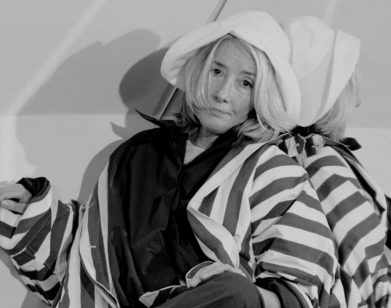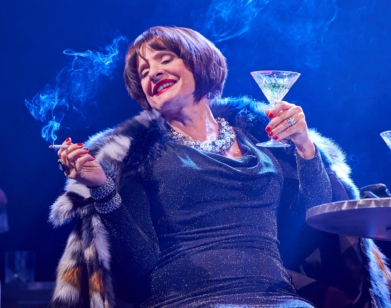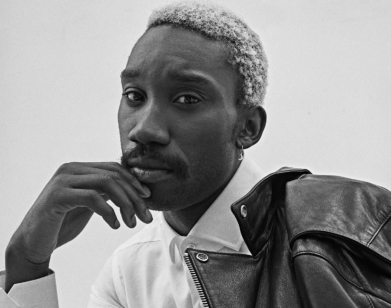Lee Pace and His Neighbor, Jessica Lange, Catch Up About Wild Fans, the Wilderness of Empty Hotel Rooms, and Nature Itself
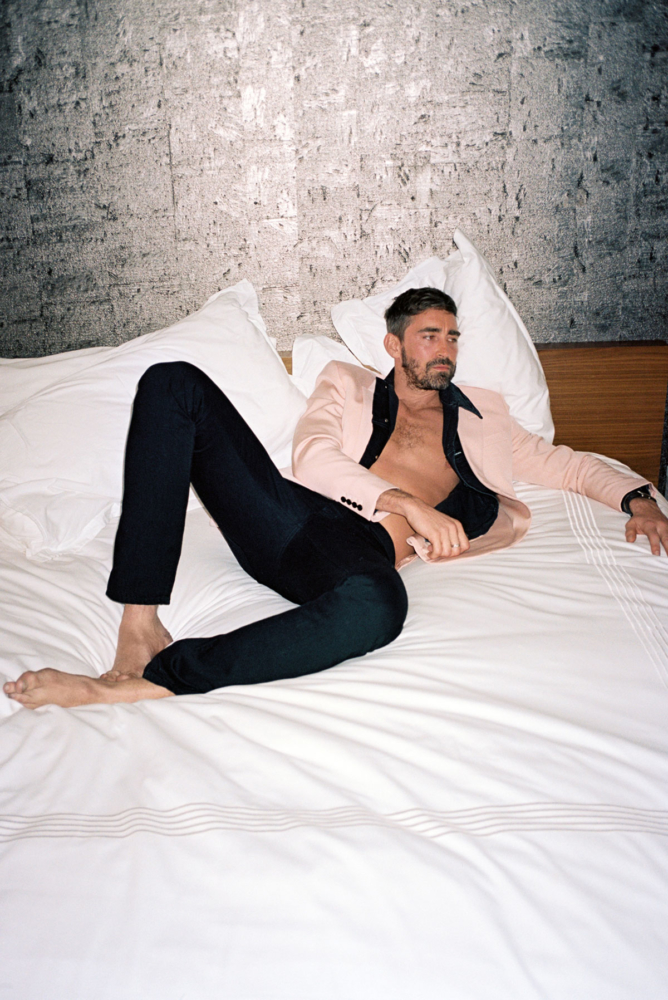
Jacket and Jeans by Saint Laurent by Anthony Vaccarello. Jacket (worn underneath) by Calvin Klein Jeans.
The first time I met Lee Pace, we were outside, next to the East River in Brooklyn, and I was a little stoned. We had just been introduced through a mutual friend, and within minutes of speaking to one another, he invited me up to “the farm,” a country house with five fireplaces, about two hours north of the city. The farm has played an important role in Pace’s life, offering him a retreat from Hollywood, but also purpose; there, with his own hands, he built a rustic barn, in which he lived until he bought the property adjacent to his from his then-neighbor, the two-time Oscar-winning actor Jessica Lange.
It makes sense that Pace feels at home outside of the city; the actor, now 40, was born in the small town of Chickasha, Oklahoma. He gained a modest, albeit devoted following by appearing on two beloved but short-lived TV series: Wonderfalls, in 2004, and, three years later, Pushing Daisies. His star, however, shot into a whole other orbit beginning in 2012, when he joined what seemed like every franchise at the time by starring in The Twilight Saga: Breaking Dawn – Part 2, all three of the films in The Hobbit series, and Guardians of the Galaxy—as the hooded, blue-faced villain Ronan the Accuser. His recent role as the closeted Mormon Joe Pitt in the Broadway revival of Angels in America was magically exhausting and eloquent, and it coincided with a public truth of his own—or, as a headline in The New York Times put it, “Lee Pace Came Out Seven Times a Week. Then He Came Out for Real.”
The actor’s two upcoming projects reemphasize his dual—perhaps dueling—interests in entertainment and art: He reprises his role as Ronan this spring in Captain Marvel and, later this summer, he’ll play John DeLorean, opposite Jason Sudeikis, in Driven, a biopic about the controversy-courting automobile tycoon. In anticipation of both films, Pace invited Lange to his apartment in New York’s West Village to talk about moviemaking, marketing, and, yes, the farm. She did a slight twirl upon entering the main room and, as one might expect from the queen of elevated shade, said, “Not bad, Lee—for a pied-à-terre.” —NICK HARAMIS
———
LANGE: Should we jump into acting?
PACE: Let’s start with the farm.
LANGE: I remember the first time I saw you, I had walked down to the pond and I looked across, and I saw somebody in that next field over there to the right. And I thought, “Fuck, I’m going to have a neighbor.” But then it turned out to be you, and that was swell.
PACE: I can’t imagine what you saw because those first few times, I was camping out there in a tent to try to figure out where I was going to build a house. I remember that first night, it was about four o’clock and it must have been early March or something. I had made camp, but I didn’t have enough time to make a fire before it got dark. I got into the tent, and I opened up my roast beef sandwich and start eating it, and then all around the quarry I heard the coyotes. I swear I heard one of them sniff the tent just right outside that nylon. So I made a ton of noise and ran back to the car.
LANGE: The land up there is haunted, but beautiful.
PACE: One of the things I’m most proud of is building that old frame out of raw timber on the edge of the woods. Then, right before Thanksgiving, I got a bunch of my friends together to push it up.
LANGE: It was like an old Amish barn raising. I remember because Sarah Paulson was staying up with me that weekend. I baked a pie and walked across the field with it wrapped in a linen basket, thinking, “This is something from another time.”
PACE: That farm has become such a big part of my life.
LANGE: As an actor, most of the time you’re staying in a hotel room in some strange city somewhere.
PACE: I do love seeing the world, and being in those hotel rooms. It’s such an incredible thing playing a character all day, and then at night you go home to this hotel and you wake up in the morning and you don’t quite know where you are.
LANGE: I think the part of it I’ve loved the most, and the part that’s been most difficult, is that nomadic life. When my kids were little, we were like a caravan. We moved dogs, birds, cats, kids, tutors—and that was great. But when you’re by yourself doing it, it’s incredibly lonely. Being an actor is an inherently lonely life.
PACE: It really is, isn’t it? It’s kind of disorienting in that way. It’s like having this sheet of thick glass between you and everyone else.
LANGE: Do you think in some way actors are already lonely people, who are then drawn to this life more than others?
PACE: There must be something.
LANGE: That and a traumatic childhood make a good actor.
PACE: Check.
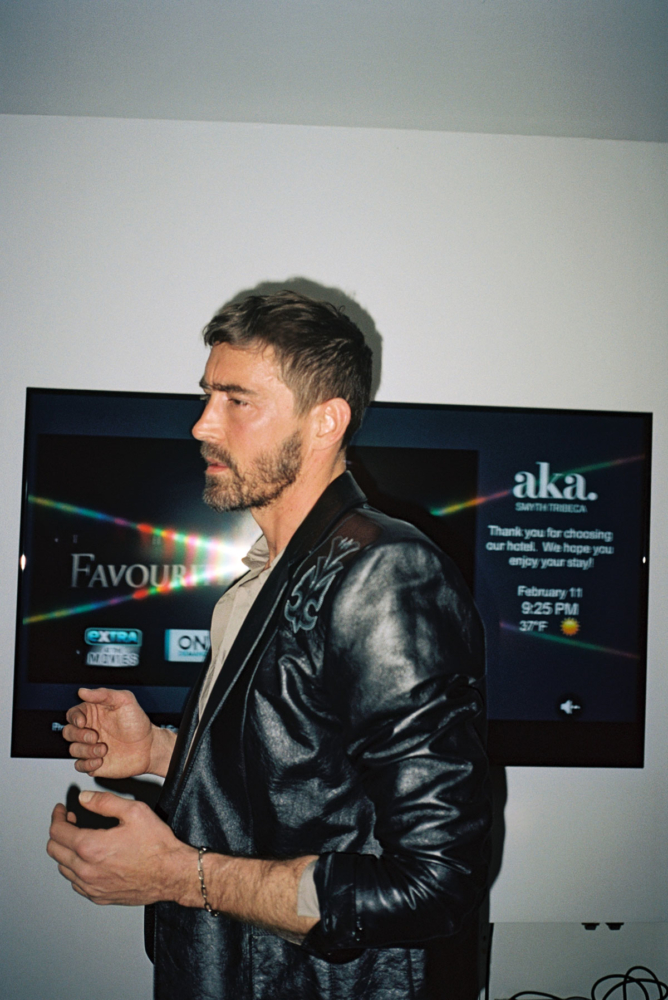
Jacket by Saint Laurent by Anthony Vaccarello. Shirt by Salvatore Ferragamo. Bracelet by Cartier.
LANGE: Tell me about Captain Marvel.
PACE: I’ve never read the script. I was doing Angels in America when I shot it.
LANGE: How in the hell did you do that?
PACE: That whole time of my life was insanity, so it just added to it. I basically did a matinee on Sunday, flew out to L.A., got painted blue, and put on a costume. Then I stood in front of a blue screen, and they’re like, “Okay, there’s a hologram in front of you and they’re saying this.” It’s so surreal in a way. I did two days of that, and then I was back onstage playing Joe Pitt in Angels in America.
LANGE: Well, that kind of covers acting A to Z, doesn’t it?
PACE: So many people see those movies and they entertain so many people, and I guess I’m an entertainer, so I embrace that. But if I’m being honest, it’s disorienting.
LANGE: When you were in Angels in America, you stepped in for another actor, right?
PACE: Yes, they had rehearsed it and had a whole run in England, so when they brought it back to Broadway, I was the only one who was new, so I was playing catch-up. As with all big experiences, life informs the situation, and it informed the interpretation of the character. When I read the play in high school, I understood this cognitive dissonance of Joe feeling like an alien in a world full of humans. I wanted to advocate for his point of view, because as a queer person, I’m seeing everyone behave as human and I feel like I’m painted blue. And the character really just goes through hell. It was the hardest thing I’ve ever done because there was no pulling the punch going onstage. I was terrified about it every day, about walking through those shoes in that public way, because the character has just stripped off his skin.
LANGE: Sometimes those are the best acting moments, don’t you think? It confirms all the reasons why we do this. Maybe I shouldn’t say this, but in that production your performance was by far the most moving.
PACE: That means so much to me. I just felt so cooked by it, do you know what I mean? I think Tony [Kushner] knew it was coming to me, because I ran into him in Provincetown and he was like, “Hey, would you consider doing this?” I think he knew it was coming, and I’m glad I didn’t know.
LANGE: You don’t have to answer this, but how does it feel when there’s a certain discord—and I’m putting it lightly—with an actor opposite you. How do you find your way around that?
PACE: Well, I guess you’ve just got to show up for that first moment, right? You make your entrance, and that’s all I could do, really. I had to love this woman deeply, profoundly, unconditionally, and I did not. But the play does the work, really. Some nights, it hit such beautiful notes. Then there were times when I would look across at her, and I was like, “This isn’t the play we’re doing. You’re angry at someone else right now.” But there’s no redoing it, so yeah.
LANGE: This summer you’re going to star in a film as John DeLorean. How is playing an actual person different than playing a fictional character?
PACE: I love playing real people. You just get so much more color. The thing that was so fun about learning about John DeLorean is that no one has the same story about him. He left such different impressions on everyone he came into contact with. There are people who thought he was a visionary of a certain time. There are people who thought he was a crook.
LANGE: What ever happened with that car company of his?
PACE: There was this whole house of cards where he needed money to keep the business running, and so he got involved in a coke deal. But the FBI was setting him up, and they got video of the whole thing.
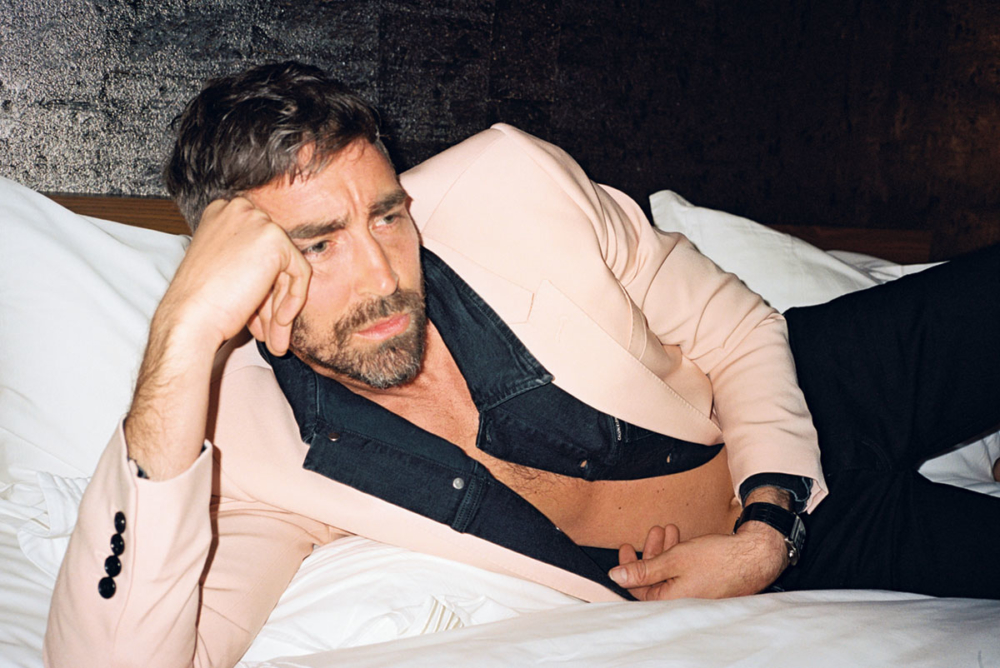
Jacket and Jeans by Saint Laurent by Anthony Vaccarello. Jacket (worn underneath) by Calvin Klein Jeans. Watch by Cartier.
LANGE: If you could play anyone in the world, who would it be?
PACE: Putin? Trump? Let’s stick to mega-villains. I don’t know. I want to work with a good director who will pick for me.
LANGE: Is there a part you want to do onstage again?
PACE: I’m not 25 anymore, but I would love to have played Romeo. That’s a character I find so interesting and contradictory. I would also like to play Uncle Vanya. I think I could still play him.
LANGE: I think you could, too.
PACE: I can’t wait to get onstage again.
LANGE: I’ve found that with series, you get to have longer to develop a character. For all the disadvantages of doing a series, that’s one advantage.
PACE: There’s also the writers. I loved our writers on Halt and Catch Fire, because they watched us and saw things in us that they brought out of the character.
LANGE: They see you and know your strong points.
PACE: I think the writers in our room were like, “He’s going to hate this,” because my character gets dragged through hell. For the first few seasons, I was like, “This isn’t fair.”
LANGE: How much do you think an actor owes his fans? Is that even part of the way you think?
PACE: I think that’s a very contemporary view. Social media creates this call-out culture where people can view something as being problematic. But I don’t really consume a lot of media, so I don’t really pay attention to it much.
LANGE: Do you have—what are those sites called? Twitter?
PACE: I have Instagram. But it’s not really the media outlets on it that I find interesting. I just find cool people doing interesting stuff. To be honest, I look at very dumb memes.
LANGE: What’s a funny anecdote you remember from a fan approaching you?
PACE: I once went up to the farm—this was after I bought your house—and I saw this rotting bag of dumplings outside, along with a ticket to Shen Yun. Do you know that Chinese dance?
LANGE: Yes.
PACE: And there was a note that said, “I know you like dumplings, please come with me to Shen Yun. I’ll be waiting with a ticket for you. By the way, you have a beautiful farm.” [Laughs] I’m so grateful that people like the work that I do and that they respond to it. Twenty years ago, I never would have dreamed that people would have felt strongly about the work that I do. But one of the lessons I learned playing that role in Angels in America is that approval is really not what it’s about. Understanding is what it’s about.
LANGE: I’m so far outside the realm of social media, but from what I’ve heard people say, your presence—or following, or whatever—now adds to your bankability. It’s insane. I passed by somebody on the street today who was talking on her phone, and she said that she had 20 million followers.
PACE: I wonder who has the most. Would it be Selena Gomez? Let’s see how many she’s got—145 million followers.
LANGE: What does that even mean?
PACE: If she posts a picture, 145 million people will see it on their feed. I mean, that’s more than a movie.
LANGE: That’s a lot of people. It feels dangerous to me. I don’t mean to be a conspiracy theorist, but do we really understand what any of this stuff is? It makes you want to retire to the farm.
LEE: I love those days when you wake up and just make coffee, then walk out into the fields.
LANGE: Do you remember that one beautiful coyote that used to cross the field?
PACE: Yes.
LANGE: He was gorgeous!
PACE: I remember one time, the pond had frozen over and these coyotes chased a doe out onto the ice and then she slipped and fell, and they ripped her up. There were tracks going back into the woods where they took a piece of her. The next day, it thawed and it all disappeared like it had never happened.
———
Grooming: Thomas Dunkin using Oribe and YSL at Bridge
Production: Kento Spanos at Total World
Fashion Assistant: Isaiah Teofilo
Post-Production: AWACS Studio
Special Thanks: AKA Tribeca

